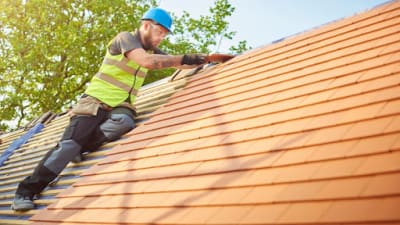How to Examine Various Roof Options for Your Building Needs
Examining roof covering choices for your building needs a detailed method that thinks about numerous factors such as the planned usage of the framework, regional environment conditions, and product qualities. It is important to evaluate the benefits and downsides of various roof types, from asphalt roof shingles to steel and clay floor tiles, while also considering initial prices and lasting maintenance. In addition, recognizing power efficiency and aesthetic charm can affect your decision. As you consider these factors to consider, one inquiry remains: which variables will eventually lead your option for a sustainable and aesthetically pleasing roofing solution?
Analyzing Your Structure's Needs
To properly evaluate roofing alternatives, begin by thoroughly assessing your structure's demands. Begin by taking into consideration the building's intended usage, as various frameworks may necessitate differing roof covering specs. For instance, residential roofing systems typically focus on aesthetics and insulation, while industrial structures might concentrate on sturdiness and load-bearing ability.
Following, evaluate the local climate problems that will affect roof performance. Aspects such as temperature level variations, rainfall levels, and wind patterns can influence product choice and style. A roof that stands out in a warm environment may not perform also in areas vulnerable to heavy snowfall or severe heat.
In addition, assess the structural honesty of your building. Ensure that the existing framework can support the chosen roof covering materials, specifically if taking into consideration heavier options. It is additionally vital to evaluate any neighborhood building codes or laws that might determine specific requirements for roof.

Comparing Roof Covering Materials
When a thorough evaluation of your building's needs has been completed, the next step involves comparing numerous roof covering materials. Each product uses distinctive advantages and drawbacks, making it necessary to straighten your option with your specific demands and conditions.
Asphalt roof shingles are widely recognized for their affordability and simplicity of setup, making them a prominent option for property structures. On the other hand, steel roof covering, recognized for its sturdiness and longevity, can hold up against harsh climate problems however may feature a higher first investment.
Clay and concrete ceramic tiles offer superb thermal insulation and visual charm, specifically for Mediterranean-style style, yet they need a more durable architectural assistance because of their weight. Wood trembles offer an all-natural appearance and great insulation buildings yet might require more maintenance and are susceptible to fire hazards.
Reviewing Price and Spending Plan
Analyzing your roof covering alternatives demands a mindful examination of cost and spending plan factors to consider. The overall allocate a roof project makes up numerous elements, consisting of product expenses, labor expenses, upkeep, and possible lasting cost savings. It is necessary to establish a clear spending plan before checking out specific roof covering products, as this will direct the decision-making process and help you prevent overspending.
Begin by obtaining quotes from multiple specialists to comprehend labor expenses in your area. Ensure that these estimates consist of all required services, such as removal of the old roof covering, setup, and any type of additional attributes, like insulation or air flow improvements - Toledo Roofer. Next, analyze the cost of various roof materials, taking into account both first installment prices and anticipated life expectancy

Understanding Energy Effectiveness
Power efficiency plays an important role in the choice of roof covering products and systems, significantly impacting both power consumption and general convenience within a building. An appropriate roofing system can i loved this improve thermal efficiency, decreasing the need for home heating and cooling down systems, which consequently reduces power expenses and minimizes environmental impact.
When examining roof alternatives, think about materials that show instead than absorb warm. Additionally, appropriate insulation and ventilation are crucial to maximize the power effectiveness of the entire roof covering system.
An additional crucial element is the roof's durability and maintenance demands. Resilient materials that need much less frequent replacement contribute to lasting power financial savings. Moreover, the power efficiency of a roof covering system can additionally be examined with its official source compliance with well established sustainability ratings such as ENERGY CELEBRITY or LEED.
Thinking About Visual Allure
A roofing system's visual allure considerably influences the total appearance of a structure, matching its architectural design and improving aesthetic appeal. Roofer. When evaluating roof covering choices, it is vital to consider just how the chosen product, shade, and design will integrate her explanation with the existing framework and community. A properly designed roofing can raise even the simplest of structures, changing them right into aesthetic focal factors
Different roof covering materials supply different aesthetic high qualities. For instance, conventional tiles might stimulate a traditional appeal, while steel roofing can present a modern, smooth look. Furthermore, the color of the roof product plays a critical function; lighter tones can make a building appear even more large, while darker tones may create a cozier ambiance.
Additionally, architectural elements, such as dormers and eaves, can enhance the roof covering's aesthetic influence. It is a good idea to talk to specialist designers or architects to make certain the chosen roofing option lines up with the overall style intent. Ultimately, a roofing must not just give practical advantages but also contribute positively to the building's aesthetic, showing the owner's preference and the personality of the surrounding environment.
Final thought
